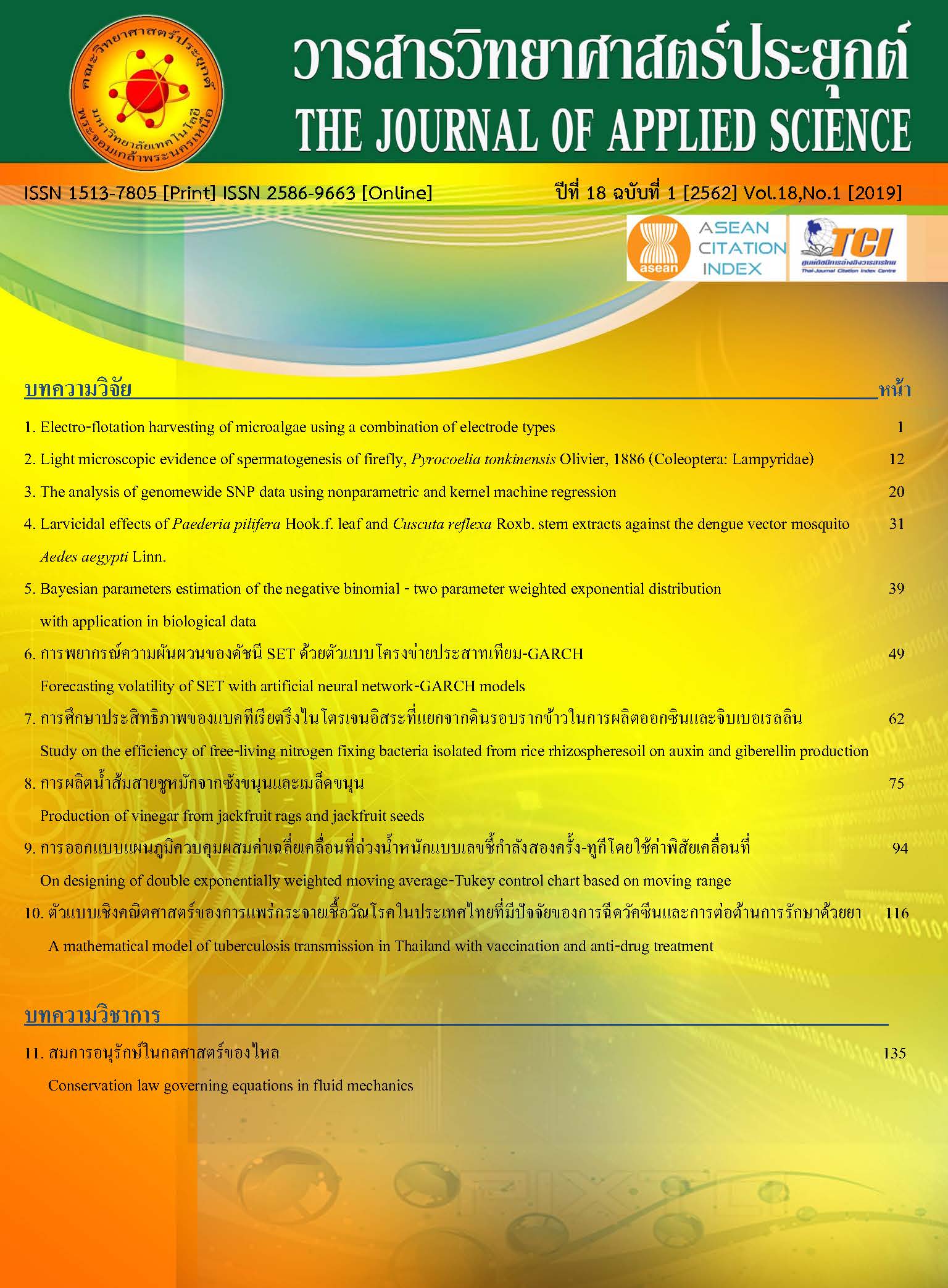Larvicidal Effects of Paederia pilifera Hook.f. Leaft and Cuscuta reflexa Roxb. Stem Extracts against the Dengue Vector Mosquito Aedes aegypti Linn.
Keywords:
Aedes aegypti, Paederia pilifera, Cuscuta reflexa, maceration, insecticidal activityAbstract
Aedes aegypti is the carrier of dengue hemorrhagic fever that remains an important public health issue in various tropical countries, especially Thailand. The use of synthetic pesticides increases the mosquito resistance and leads to change the mosquito behavior. Recently, plant extracts and their products have become increasing popular for use as alternative natural agents in mosquito control. Hence, this research aimed to investigate the efficacy of the parasitic plant extracts from Paederia pilifera and Cuscuta reflexa for killing the early 3rd stage-larvae of Ae. aegypti. Both dry plants were separately extracted by maceration with 95% ethanol for 72 h, then filtered and evaporated using vacuum evaporator until dryness. The mosquito larvicidal activity was evaluated after 24 h exposure at different concentrations (0 (control), 25, 50, 100, 200, 400, and 800 ppm). The results revealed that the C. reflexa extract gave the higher effectiveness to eliminate mosquito larvae than the P. pilifera extract with LC50 and LC90 of 80.55 and 297.94 ppm, respectively. Therefore, current investigation suggests that these plants extracts are potential natural agents for controlling or preventing the growth of Aedes mosquito larvae.


